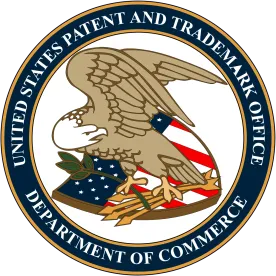The recent passage of the massive Coronavirus Aid, Relief, and Economic Security (“CARES”) Act by Congress authorized the United States Patent and Trademark Office (“USPTO”) to temporarily adjust its statutory time periods for replies and fees to help applicants file during the COVID-19 outbreak. With countless individuals and businesses significantly impacted by the growing pandemic, on March 31, 2020, the USPTO announced that certain deadline waivers could be requested to prevent patent applicant rights being forfeited as a result of this global hardship.
In its patent notice, an extension of 30 days is now available on deadlines for responses to final and non-final office actions, as well as various appeal documents. For small and micro entities, an extension is also available for responses to pre-examination formalities. These deadlines must have originally fallen between March 27 and April 30, 2020 (inclusive), and the filing must include a statement that the delay in filing was due to the COVID-19 outbreak. The USPTO appears to be taking a wide interpretation of applicants’ reasons on how COVID-19 delayed their filing, and would not require any further documentation nor evidence. The waiver itself can be requested without any additional fee, but any original extension of time fees would still be due at the time of filing. Acceptable reasons include, but are not limited to, office closures, cash flow interruptions, inaccessibility of files or other materials, travel delays, personal or family illness, or similar circumstances, such that the outbreak materially interfered with timely filing or payment.
Of particular significance here is the reference to cash flow interruptions, given the economic hardships that so many businesses are enduring.
The 30-day extension applies to all of the following in patent application and reexamination proceedings:
i. reply to an Office notice issued during pre-examination processing by a small or micro entity;
ii. reply to an Office notice or action issued during examination or patent publication processing;
iii. issue fee;
iv. notice of appeal under 35 U.S.C. § 134 and 37 C.F.R. § 41.31;
v. appeal brief under 37 C.F.R. § 41.37;
vi. reply brief under 37 C.F.R. § 41.41;
vii. appeal forwarding fee under 37 C.F.R. § 41.45;
viii. request for an oral hearing before the PTAB under 37 C.F.R. § 41.47;
ix. response to a substitute examiner’s answer under 37 C.F.R. § 41.50(a)(2);
x. amendment when reopening prosecution in response to, or request for rehearing of, a PTAB decision designated as including a new ground of rejection under 37 C.F.R. § 41.50(b);
xi. maintenance fee, filed by a small or micro entity; or
xii. request for rehearing of a PTAB decision under 37 C.F.R. § 41.52.
For proceedings before the Patent Trial and Appeal Board (“PTAB”) beyond appeal and reexamination matters, the same 30-day extension applies to the following:
i. a request for rehearing of a PTAB decision under 37 C.F.R. §§ 41.125(c), 41.127(d), or 42.71(d);
ii. a petition to the Chief Judge under 37 C.F.R. § 41.3; or
iii. a patent owner preliminary response in a trial proceeding under 37 C.F.R. §§ 42.107 or 42.207, or any related responsive filings.
In addition, if the USPTO extends a deadline for a preliminary response or any related responsive filings under the just-mentioned item (iii), the PTAB may also extend the deadlines provided in 35 U.S.C. §§ 314(b) and 324(c).
Similarly, the Chinese National Intellectual Property Administration (“CNIPA”) last week announced that applicants may apply to have various patent rights restored if lost due to missing deadlines for responding to Office Actions and fee payments. Applicants would need to apply for this relief within 2 months after a particular COVID-19-related event ends, such as quarantine or government-ordered closure. Adopting a stricter procedure than the USPTO, the CNIPA would also require that applicants provide evidence of the COVID-19-related event, such as official government orders or doctor’s recommendation, but would not require any additional fee for requesting the restoration of these rights. However, such waivers are not eligible to be granted for priority claims, patent novelty grace periods, nor periods for asserting patent infringement.
The Intellectual Property Office of the United Kingdom (“UK IPO”) had gone even further by declaring March 24, 2020, and each subsequent day, an “interrupted day,” extending any deadlines for patents and patent applications until the UK IPO declares an end to this period of interrupted days. The UK IPO will reevaluate its policy on April 17, 2020, and will give at least 2 weeks of notice before declaring the end of this period. The European Patent Office (“EPO”) was the first national patent office to provide applicants with similar relief, extending deadlines from March 15, 2020 to April 17, 2020 for European and PCT applications. However, the EPO requires evidence that the filing could not be made within the 10 days prior to its original deadline, and that the filing was made within 5 days after the end of the disruption.
While many national offices have now announced varying procedures for applicants to preserve their patent rights, there remains significant uncertainty as to the severity and duration of the effects of COVID-19 on the global economy. Applicants and participants in post-issuance proceedings should make a best effort to continue meeting original deadlines, and retain any documentation and evidence that could be relied on in the event that waivers are needed from the national patent offices.




 />i
/>i

